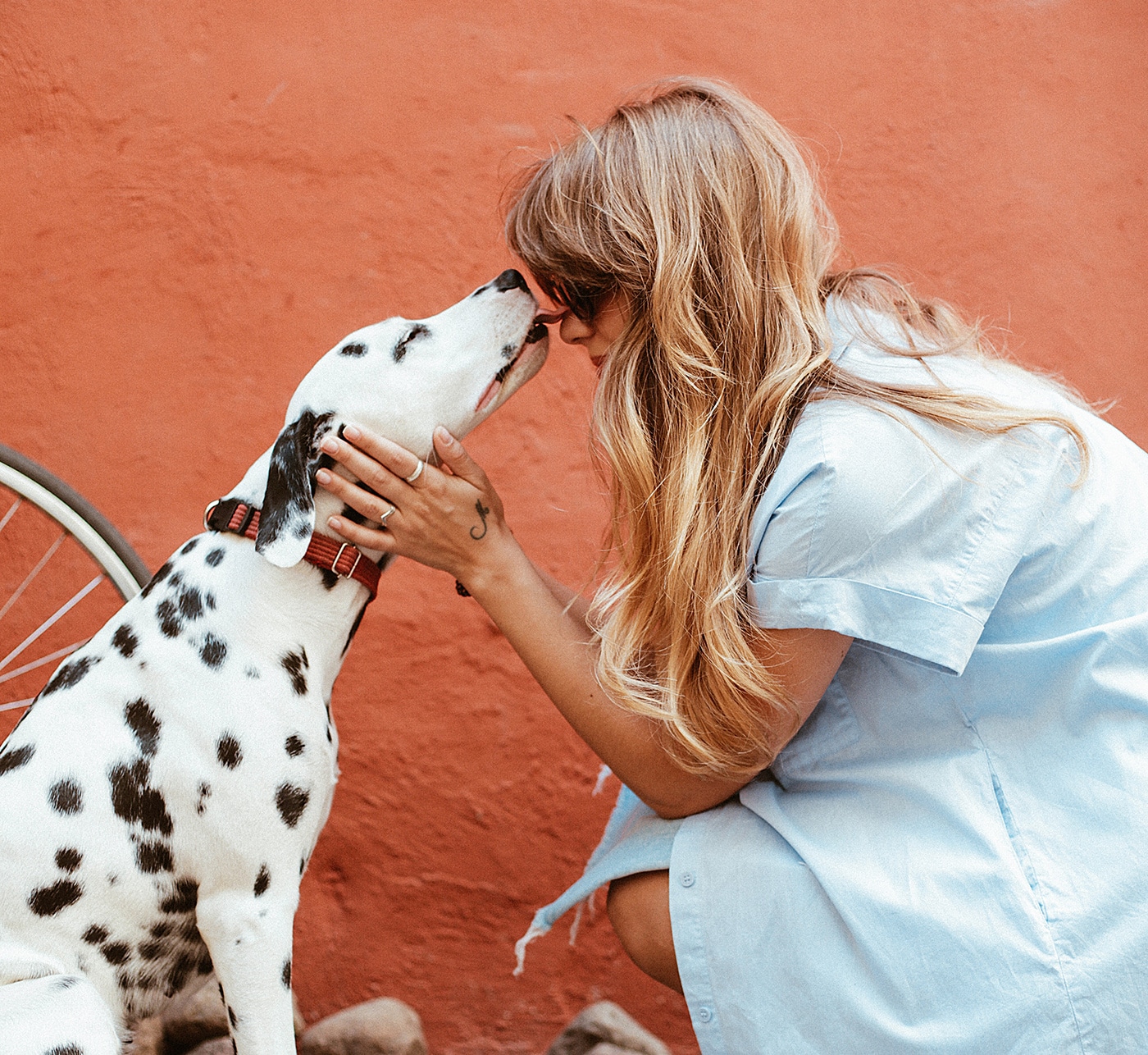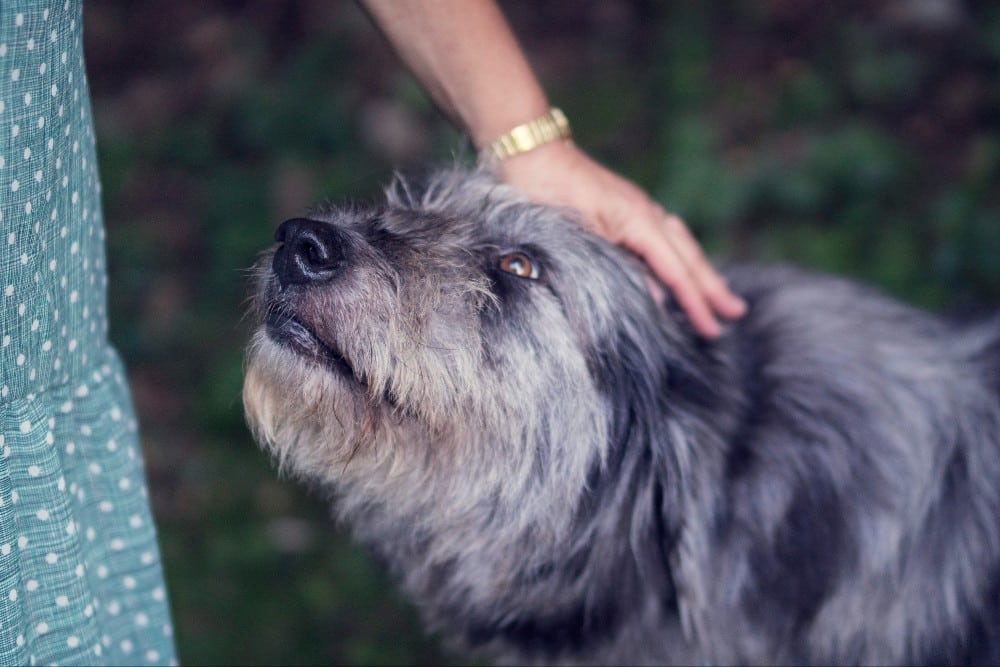Life gets in the way sometimes. From jobs unexpectedly lost to medical emergencies, there are times when it can be difficult (or even impossible) to take care of your dog. You may have to face the heartbreaking decision to rehome your dog.
Or do you? While there are legitimate reasons for rehoming a dog, in many situations, resources are available to help keep your dog at home, providing you have the time — and the desire — to put in some work.
Here are some of the most typical reasons that people think about rehoming their dog. If you’re unsure about what to do, or you’re overcome by guilt, check out these resources before giving your dog away.
You’re Having a Baby
Some people get a dog as their “practice baby,” but when they have their own child, they decide they don’t have the time to take care of their dog.
However, dogs and children can be a great combination. As soon as you find out you’re pregnant, start figuring out how to prepare your dog for a new little human. It will entail training, socialization and exposure to baby gear, but it will be worth it to have your little human grow up with a furry best friend. (There are a ton of benefits.)
Many mothers and fathers learn to push a baby carriage while walking their dog. But if you feel overwhelmed, consider hiring a responsible dog walker for those first few difficult months. Before your baby is due, take steps to find a dog walker.
Related: Ultimate Guide: 24 Things You Need to Know When Introducing a New Dog to Your Kids
The more you include your dog in family activities, the better socialized your dog will become. But take baby steps (no pun intended) to make the transition less stressful on everyone.

Your Dog Bit Someone
In this situation, it depends on the dog and the circumstances. The first course of action should be figuring out what caused your dog to bite someone by looking at what happened right before.
Kayla Fratt, a certified dog behavior consultant and owner of Journey Dog Training recalls a client whose dog nipped at a person who bent over and tried to kiss the dog on the head. “They wanted to know if they should get rid of their dog. And I said, ‘no, you just have to tell people not to kiss your dog on the head, and your dog will be fine.’”
In the event that your dog bites someone, before rehoming, Fratt recommends seeking out a dog behaviorist. “Go to International Association of Animal Consultants website and hire a certified dog behaviorist,” Fratt advises. “Don’t go to your local obedience trainer to work on this. It’s not going to help. You need someone with specialized knowledge in behavior issues, not just basic obedience.”
It’s a different situation if your dog attacks a stranger, for example, for no apparent reason. But if that dog has been seriously abused or neglected in the past and become fearful, and he bites out of fear, or if the dog is injured or ill, there are still steps you can take before giving up your dog.
Do not discipline the dog with any kind of aggressive or physical punishment, which will make the problem worse. A dog who bites out of fear can often be rehabilitated, but it will take time. Always keep the dog on a leash, do not let people approach the dog and consider using a muzzle if necessary. An animal behaviorist and a veterinarian may be able to help, and if not, they can make you aware of your options.
Your Dog Has Bit Your Child
There are a lot of strong emotions around a dog biting your child. Before you decide to rehome your dog, take a moment. “Look at the situation and try to figure out where the responsibility lies between the adult, the child and the dog,” says Fratt.
For example, she says, if the dog is growling because the child is trying to climb all over him while the dog is trying to sleep, it’s the responsibility of the adult to instruct the child to stop doing that.
If a child has been climbing on the dog or pulling the dog’s tail or ears, and the dog eventually nips, it doesn’t mean the dog is aggressive. It means the parents need to teach their child to be gentle with the dog.
“If the child is too young to understand that, parents should figure out how to keep the dog and the child separate,” says Fratt. She recommends using baby gates, exercise pens or even highchairs, and always supervising your child’s interactions with the dog.
Consider checking out a program like Journey Dog Training’s Keeping Kids Safe and Dogs Happy. You can also go to the website, Family Paws Parent Education, which offers immediate consultation and resources as well as programs including Dogs & Toddlers.
A Family Member Has Developed an Allergy to the Dog
While this is certainly an issue, there are resources that may allow you to continue living with your dog.
First of all, go to a doctor to determine if you or your family member is actually allergic to the dog. You may find that you’re really allergic to something he picked up on his fur, like pollen. If this is the case, try using a product that removes allergens from your dog’s coat when he comes in from outside.

You can also set a regular schedule of bathing (talk to your vet about this), and use a special shampoo that removes allergens.
Other recommendations to reduce allergens include vacuuming and dusting frequently, using a vacuum with a HEPA filter and using an air purifier with a HEPA filter. If your child is allergic (or anyone else), designate his or her bedroom as a no pet zone. And there is of course allergy medicine people can take.
The upside to sticking with your dog in spite of allergies is that over time, the exposure to the dog will most likely reduce the allergic symptoms.
Related: Dogs Could Reduce Allergies and Likelihood of Obesity in Children
You’re Moving to an Apartment that Doesn’t Allow Dogs
Though it can be more difficult to find pet-friendly housing, the obvious solution is to put in the time to find a place that is dog-friendly.
Real-estate sites usually allow you to filter for pet-friendly places. During your search, there are things you can do to make your landlord (or co-op board) love your dog. The Humane Society of the United States recommends creating a “pet resume,” getting a letter of reference from your current landlord or board, providing proof that your dog has passed training classes, and enrolling your dog in a Canine Good Citizen class for certification.
Related: This Organization Lists Pit Bull-Friendly Housing in One Easy-To-Use Database
Bring your dog to meet potential landlords, and consider having your dog do a cute trick, like shaking hands. Be prepared to pay a dog deposit or extra monthly fee too — but be sure to have the amount specified in writing.
If you find yourself in a situation where your landlord or co-op/condo board suddenly decides to ban pets, check your lease. (Don’t ever sign a lease that indicates no pets, even if the building ensures you that it’s just for show.) A contract can only be changed if both parties sign, so if you suddenly find yourself threatened with eviction because of your dog, consult with a tenants’ rights agency or lawyer.
If you have run out of time to find pet-friendly housing, and you have to move NOW, there are still resources that will allow you to keep your dog. The best situation is a relative or friend who can take care of your dog temporarily. If you don’t have that option, you can try to arrange a temporary foster. There are organizations who may be able to help, such as PACT and Foster Dogs. If you are able to find a temporary foster for your dog, consider using a contract to avoid potential problems when you are ready to pick up your dog.
You’re Having Trouble Affording Your Dog’s Care

Dogs can be expensive. Between food, medical care, medications, parasite protection and dental care, it can be hard at times to provide for your best friend.
The good news is that this isn’t an uncommon problem. Consequently, there are organizations and agencies who can help with financial aid. You can also check the Humane Society’s resource by state page.
However, if you are facing extreme circumstances, such as losing your home or not having money to feed yourself, rehoming your dog might be the right decision.
Related: How to Help Your Dog When Your House Gets Foreclosed On
If You Must Rehome
If you are facing extreme circumstances, and you have no other choice but to rehome your dog, do it the responsible way. Never list your dog in a personal add or an online listing site, especially for free. Pets adopted on these sites are much more likely to be abused or worse.
Consider working with a local rescue or professional organization like Rehome or Get Your Pet. If you have a trusted dog walker, groomer, pet store staff, daycare and boarding staff or your veterinarian, talk to them; they may know people who want to adopt a dog. Ask your friends, family members and coworkers to spread the word. You must make sure that the person who adopts your dog has the best intentions and the family and home is the right fit.
Take a great photo of your dog and write an engaging “bio.” List any training, cute tricks, favorite food and treats, and whether your dog gets along with children and other pets.
Once adopters contact you, try to do an in-person interview and make a home visit. Observe how they and their family relate to your dog and your dog’s reaction to them. Ask about prior pet experience and their financial resources to care for your dog. If they have a yard, check to see that it’s secure.
Finally, consider their lifestyle and your dog’s temperament. If you have dog with tons of energy, being left alone for many hours every day will not be ideal. A home with small children is often not a good fit for toy and small breeds.
Write down the ideal qualities in a home for your individual dog, and use that as a guide. The goal is to find someone who can offer your dog a forever home.



















